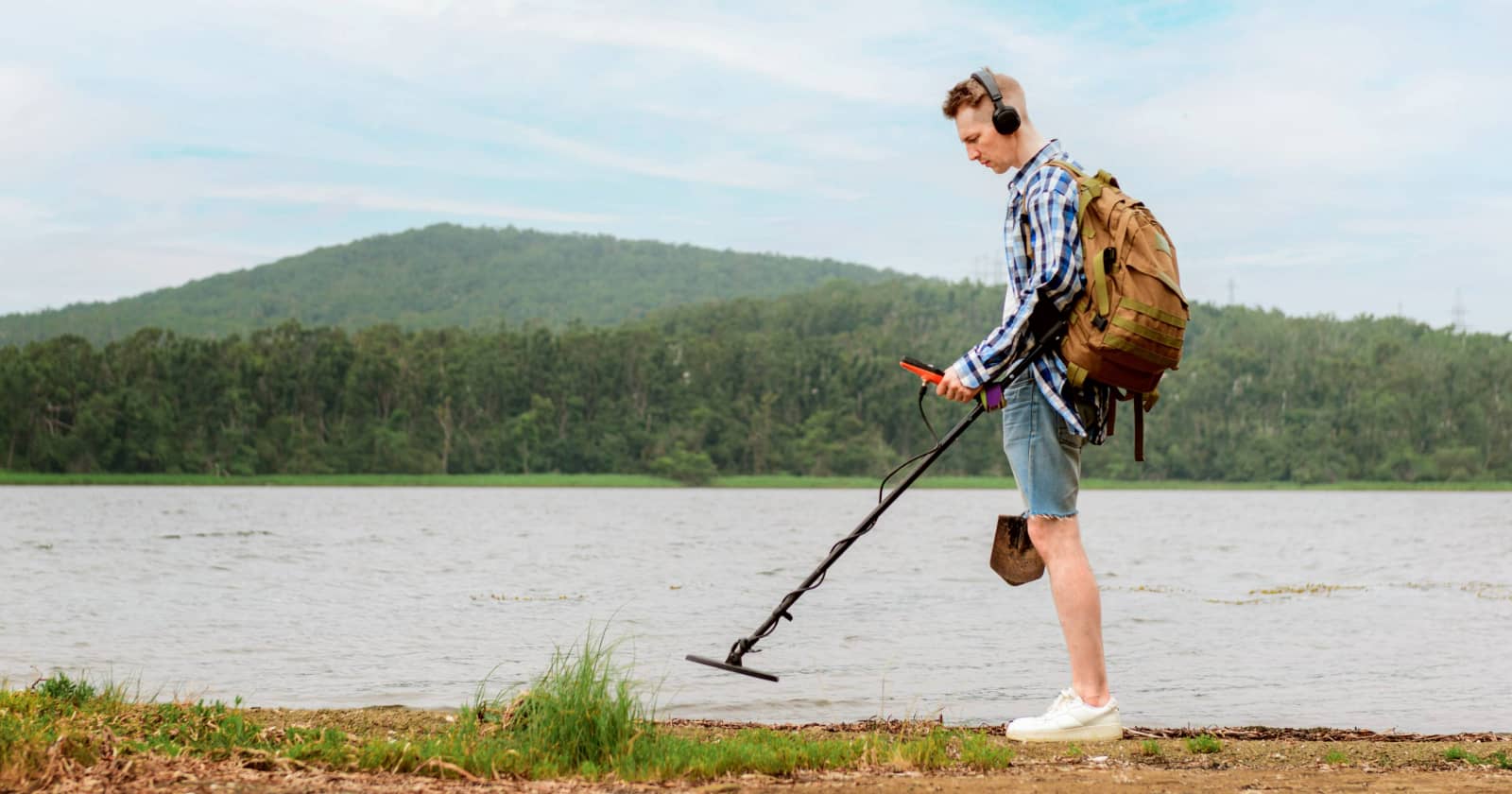When storing your RV in a location where the temperature may drop below freezing, you’ll need to winterize your rig’s water lines. The winterization process removes water from the lines, preventing damage to valves, pipes, and faucets from water that expands and turns to ice.
Note: When water freezes, it expands. This principle causes icebergs to float, and water pipes to burst in your home or RV.
To winterize your RV’s water lines you could
- flush and fill the system with RV antifreeze
- blow all water from the piping with an air compressor
- do a combination of the first two methods
In this article, we’ll take a look at what size air compressor is needed to effectively winterize an RV.
How Big of An Air Compressor Do You Need to Winterize Your RV?
When using an air compressor to winterize, you don’t need to blow out the water with force. You simply need to remove the small amount of water that remains after gravity draining your water lines.
RVs have low point drains in their water system. By opening these drains, most of the water in the system will drain out by gravity. It’s the remaining water that you’ll need to remove using the air compressor.
This process isn’t like filling a tire to 100 psi. It’s closer to blowing out the dust in your computer keyboard.
Let’s take a look at a few of the most helpful responses from experienced RVers to determine what sized air compressor is best when using the blow out method to winterize your RV.
Volume – not pressure – is what you need.
You don’t need pressure, you need volume. A car tire compressor with tank isn’t nearly enough. I have a 20 gallon on wheels that I use. It works perfect. I would just tow it home, winterize, and tow it back. You’ll be ahead in the long run. If you know you’re not going to used it again when you come back from a trip, winterize it at home when you unload it, then take it back to the storage lot. – btd35 on RV.net
A 20 gallon air compressor is probably more than you’ll need to simply winterize an RV. If you’ve got one that large, it will work fine, but others use much smaller compressors.
Will a 1 gallon air compressor do the job?
If you don’t bypass your water heater you essentially have a compressor tank of whatever volume your heater is plus the compressor. It will take a bit for the 1 gallon compressor to fill the water heater to 40 PSI, but it will work. Just let it run until the compressor kicks off and you should be able to purge your system. It may take a couple of shots to get all the air out, but I see no reason why it will not get the job done. I have three compressors, a 5 gallon being the smallest and it cycles several times to get the job done to my satisfaction. – BaronBigDog on ForestRiverForums
Use a 2 gallon compressor with 100 psi max.
I’ve used a 2 gallon compressor that offers 100 psi at max. I set it as 40 lbs and blow out each line twice. And while I head south on Jan 1, it gets into the low 20’s and high teens before I leave so it’s imperative I have winterized properly. I’ve done this for five yrs and helped a friend, who stays here all winter, with a 5’er for three. Neither of us have had any problem whatsoever. Camp on! – The Painting Teacher on RV.net
Use a 3 gallon Porter Cable at 35 psi.
There are obviously (strong) opinions regarding “air” versus the “antifreeze” methods. For me, my 3-gallon Porter Cable pancake compressor, set at about 35 psi, has done the job on many TT’s over the course of the past 30 years. When the job is done right (i.e., take your time), there is no hint of water and/or mist coming out of the faucets or low-point drains. I find that the compressed air method works better for us, since we frequently take the TT out in the winter and head South, and we don’t have to worry about flushing the “pink stuff” out each time. Since the compressor stays in the truck, we always winterize before heading back up North using the air method.
Bottom-line: whatever works best for you (and your peace of mind). – DocP on RV.net
Maybe you should use RV antifreeze instead?
One concern though is that when using an air compressor to winterize, you can’t remove the water inside the pump or other important areas in your RV’s water system.
IMHO the best thing is to forget the blowing out the lines and just use the RV antifreeze pumped thru the lines. Blowing the lines out will not get rid of the water in the pump or it’s line that meets the main cold water line so that critical part of your water system needs to be protected and only by pumping antifreeze thru the pump will accomplish thatl You can address the city water inlet by manually opening the stop valve with the system open and unpressurized which is the one area that blowing out you lines does help in winterizing. – LarryJM on RV.net
Combine the two processes by blowing out the lines first, then using RV antifreeze.
You might also use a combination of the blow out and antifreeze methods.
Blow the lines with whatever you have then fill with pink. Guarantee that will work absolutely perfect.
BTW I’ve used everthing from a 12VDC car compressor to a small 1gallon oiless to my 20g twin cylinder to blow out the lines and it really doesn’t matter. With the smaller units I just wait till it builds a little pressure then open the tap to blow out the water/air. Not a big deal at all but I highly recommend pink after your done. I live in Canada so not using it is really is not an option. – shum02 on RV.net
Other Factors to Consider
While you may have a huge air compressor in your garage, it’s not going to help much if your RV is already at the storage facility. Factor in the burden of transporting your compressor before you buy.
Some compressors can introduce debris and oil into your RV’s water lines. You might consider buying an oil-free compressor or one with an integrated filter.
Conclusion
One of the benefits of using an air compressor to winterize your RV is that you don’t have to flush out RV antifreeze once you want to use your trailer again.
Note: Even if you use an air compressor to remove the remaining water, you’ll still need to dump a few cups of RV antifreeze down each drain’s P trap to maintain an airtight seal.
To use the blow out method, you don’t need a powerful air compressor, just one that puts out a high volume of air. A 2 or 3 gallon air compressor has worked well for many experienced campers.
You might also consider a hybrid winterization process. Open the low-point drains and faucets to let gravity remove most of the water. Use an air compressor to blow out the remaining water, and then add RV antifreeze to be sure your stored RV is prepared for below-freezing temperatures.
Resources:
- How To Winterize Your RV Water System Using An Air Compressor.
- RV Winterizing and Winter Storage: Need to Know Information for the Off-Season
- How to Winterize Your RV With or Without an Onboard Washer and Dryer. [VIDEO]
Helpful forum threads:
- Forest River Forums – winterizing methods
- RV.net – minimum air compressor size for winterizing?
- RVForum.net – blowing out water lines for winterizing
Suggested air compressor models:
- VIAIR 450P Automatic Function Portable Compressor (oil-free with integrated filter)
- PORTER-CABLE 3.5 gallon 135 psi air compressor (oil-free)




